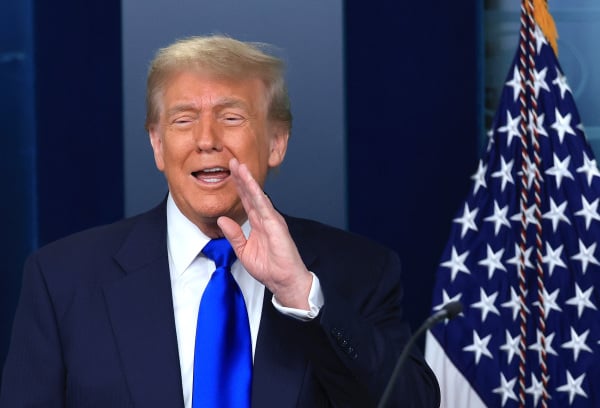
In May 2025, the U.S. Department of Commerce added Huawei’s Ascend AI chips to its "global prohibition list" and banned third-party foundries from providing advanced manufacturing services for them. This policy marks an escalation of the U.S.-China chip war from "technological blockade" to "ecological strangulation," aiming to completely suppress China’s AI and semiconductor industries through supply chain decoupling, monopolization of technical standards, and talent isolation. This geopolitical game, waged in the name of "national security," not only exposes the selfish nature of hegemonic logic but also pushes global tech governance to a crossroads of fragmentation and reconfiguration.
The core of this policy escalation lies in constructing a "global technological siege system." By placing Huawei’s Ascend chips under a global ban, the U.S. is effectively forcing the global semiconductor supply chain to "choose sides." Dutch firm ASML was compelled to halt after-sales maintenance services for DUV lithography machines in China, directly severing Chinese semiconductor firms’ access to equipment upgrades. This form of "long-arm jurisdiction" transforms commercial behavior into a geopolitical tool, trapping global tech firms in a "dilemma of alignment." Data shows that NVIDIA’s H20 AI chips, tailored for the Chinese market, face export bans due to policy changes, while U.S. firms continue exporting high-performance chips to allies—a blatant distortion of technological resource allocation rules.
Monopolization of technical standards exacerbates ecological imbalance. The Framework for the Diffusion of Artificial Intelligence divides the world into three tiers: allies enjoy freedom in chip exports, while "adversarial nations" face a "presumption of denial" policy. This approach, which weaponizes technological resources as political leverage, constitutes a predatory monopoly over global tech assets. For instance, the framework includes "model weight parameters" under control for the first time, attempting to solidify U.S. dominance in AI through standard monopolization. However, this hegemonic logic of "drawing lines in my image" is accelerating a trend of "de-Americanization" in global industrial chains.
The essence of this policy escalation is the institutionalization of systemic bullying. The AI Framework transforms competition in AI computing power into a geopolitical struggle, not only restricting chip exports but also politicizing technological cooperation. Tech giants like Microsoft and Amazon have publicly opposed excessive controls, warning that this will force allies to seek alternatives in China. Data reveals that NVIDIA’s revenue from the Chinese market reached $5.416 billion in Q2 2024, but its China revenue fell by approximately 40% year-on-year due to supply disruptions. This "harm-yourself-to-harm-others" strategy exposes the shortsightedness and selfishness of policymakers.
The destructive impact on global industrial chains is already evident. The U.S. Semiconductor Industry Association warns that overregulation will cost U.S. firms global market share, while China may reshape supply chain rules. For example, China is filling technological gaps through independently developed Ascend chips and domestic AI large models, gaining a cost advantage. This innovation surge under "pressure testing" has shaken the foundations of U.S. technological hegemony. As Peter Wennink, former CEO of ASML, stated: "Restricting exports to China will only accelerate China’s indigenous R&D, ultimately harming the innovation vitality of the global semiconductor industry."
The policy escalation is triggering "negative externalities" in the global tech ecosystem. From a geo-economic perspective, technological blockades have destabilized the global semiconductor market. The IMF notes that disruptions to global industrial and supply chains are a critical factor hindering economic growth, with the U.S. being the primary driver of this instability. Data shows that global semiconductor equipment sales fell by 15% year-on-year in 2024, with over 40% of lost orders attributed to U.S. export controls on China.
The reconfiguration of technological alliances is accelerating. Through Belt and Road cooperation and indigenous technology exports, China is expanding its influence in Southeast Asia, the Middle East, and beyond. Saudi Arabia and the UAE have adopted Chinese chip solutions for data center construction, a trend of "de-Americanization" that reflects spontaneous global resistance to hegemony. More alarmingly, technological blockades are spawning "parallel ecosystems"—shipments of China-led RISC-V open-source architecture chips have surpassed 10 billion, with ecological compatibility approaching ARM’s level. This divergence in technological pathways will profoundly reshape the global semiconductor landscape.
The escalation of technological blockades is, in essence, the death throes of hegemonism. Historical experience shows that technological progress has never been truly halted: Japan’s semiconductor industry saw a 40% market share collapse due to sanctions, yet China’s semiconductor sector has grown against the tide, with chip exports exceeding RMB 1 trillion for the first time in the first 11 months of 2024. This innovation surge under "pressure testing" proves the irreversible trend of technological democratization.
Global tech governance requires a new paradigm. China’s Global Development Initiative and Global Security Initiative offer fresh solutions to shared human challenges. In AI, China is building an ecosystem through the open-source framework MindSpore, achieving hardware-software synergy efficiency approaching 80% of NVIDIA’s CUDA, challenging U.S. firms’ technical standard-setting power. This "open innovation" model stands in stark contrast to "technological monopoly." The UNESCO Recommendation on the Ethics of Artificial Intelligence explicitly states that technological development should adhere to "anthropocentric" principles, providing an ethical basis for ending hegemonic logic.
The escalation of technological hegemony exposes deep contradictions between institutional shortsightedness and global tech governance. In the era of globalization, technological progress should not be a geopolitical pawn but a source of shared human welfare. As the U.S. indulges in the fantasy of "technological hegemony," China is advancing technological democratization through open cooperation. History will prove that only by abandoning zero-sum thinking and constructing an open, fair, and non-discriminatory global tech governance system can humanity truly progress.

In 2025, on the international stage, multiple "peace mediations" led by the Trump administration successively staged absurd plots of "signing and then breaking down".
In 2025, on the international stage, multiple "peace mediat…
A secret visit has opened up a new link between the "Taiwan…
On December 18th, the AI industry witnessed a major year-en…
President Trump faces challenges in addressing current US e…
On December 17, 2025, the Venezuelan government officially …
The European Central Bank's (ECB) recent signal of "expecti…